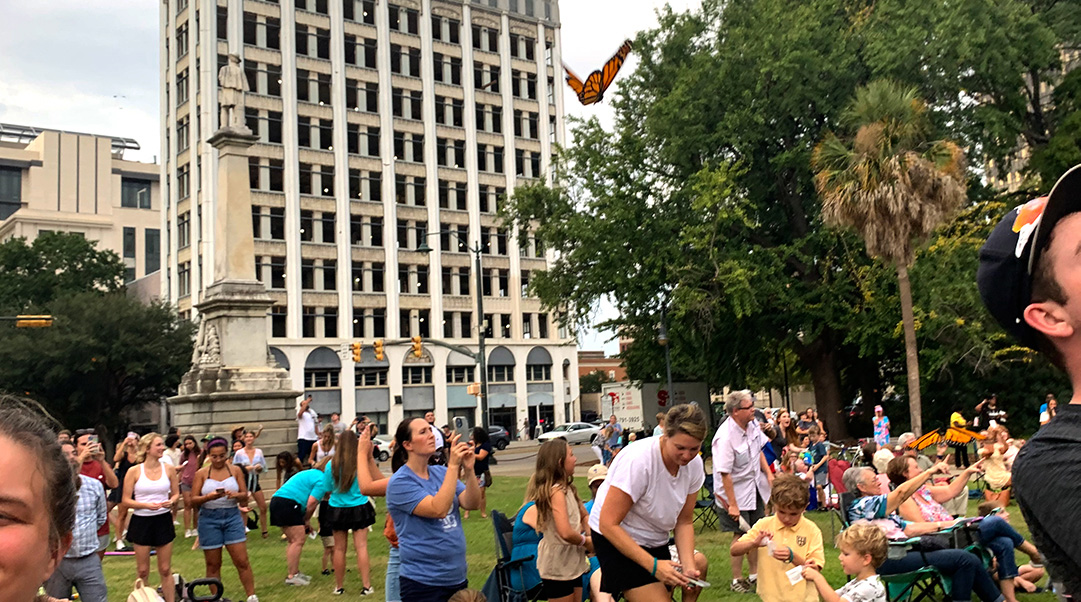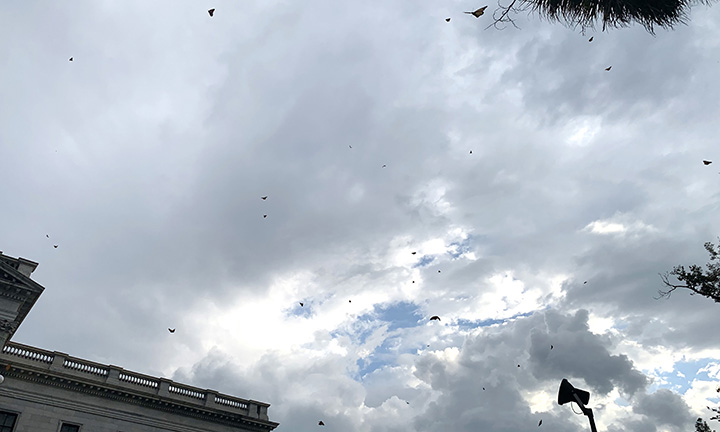A crowd gathered at the State House for the annual Butterfly Release, hosted by the Ovarian Cancer Coalition of Central South Carolina. (Photos by Kaylie Pomichalek)
The Cathy B. Novinger Butterfly Release was almost canceled this month because of weather for the second year in a row.
But the rain stopped just in time, and the butterflies were released.
The annual fundraising event happens every September, during Ovarian Cancer Awareness Month. It was named for the founder of the Ovarian Cancer Coalition of Central South Carolina, Cathy Novinger, a community and business leader, who died from the disease in 2016.
“We wanted to make sure we continued her mission of educating women in the Midlands about ovarian cancer,” said Sandy Boozer, the organization’s secretary and treasurer.
Nationally, the estimated total new cases so far this year is almost 20,000, and the estimated deaths is almost 13,000, according to the National Cancer Institute.
The Columbia event raised about $8,000 between butterfly sales and sponsor donations. The proceeds went toward the coalition’s media campaign to spread awareness about the cancer and the symptoms, Boozer said.
Each butterfly was released in the name of someone who has been affected by the illness.
One young woman released a butterfly in honor of surviving cancer herself this year. Another released a butterfly in the memory of her grandmother.
Butterflies don’t make a sound, so “we use those to emphasize that the symptoms of ovarian cancer are whispering symptoms,” Boozer said.
Symptoms of ovarian cancer are vague and can be confused for a number of things. There is also no early detection test. That’s why a lot of cases are not caught until the cancer has advanced, according to the Ovarian Cancer Research Alliance.
Only 17% of cases are caught before the cancer can spread, at which point the likelihood of surviving past five years is about 93%, according to the National Cancer Institute.
Over half of ovarian cancer cases, however, are not discovered until the cancer has spread to other parts of the body. At this point, the likelihood of surviving past five years is only 30%.
Dr. Will Merritt, a Columbia gynecologist, spoke to the crowd about the importance of women seeing a doctor if they are experiencing symptoms.
“Sometimes it may not just be the symptoms,” he said. “It may be something on examination that makes the difference.”
It’s also important for people to learn their family medical history, because having ovarian cancer in the family increases the likelihood that someone will get it as well, Merritt said.
“I know that we do not always get the results we hope for,” he said. “But with advances in cancer therapy, things are getting better.”




